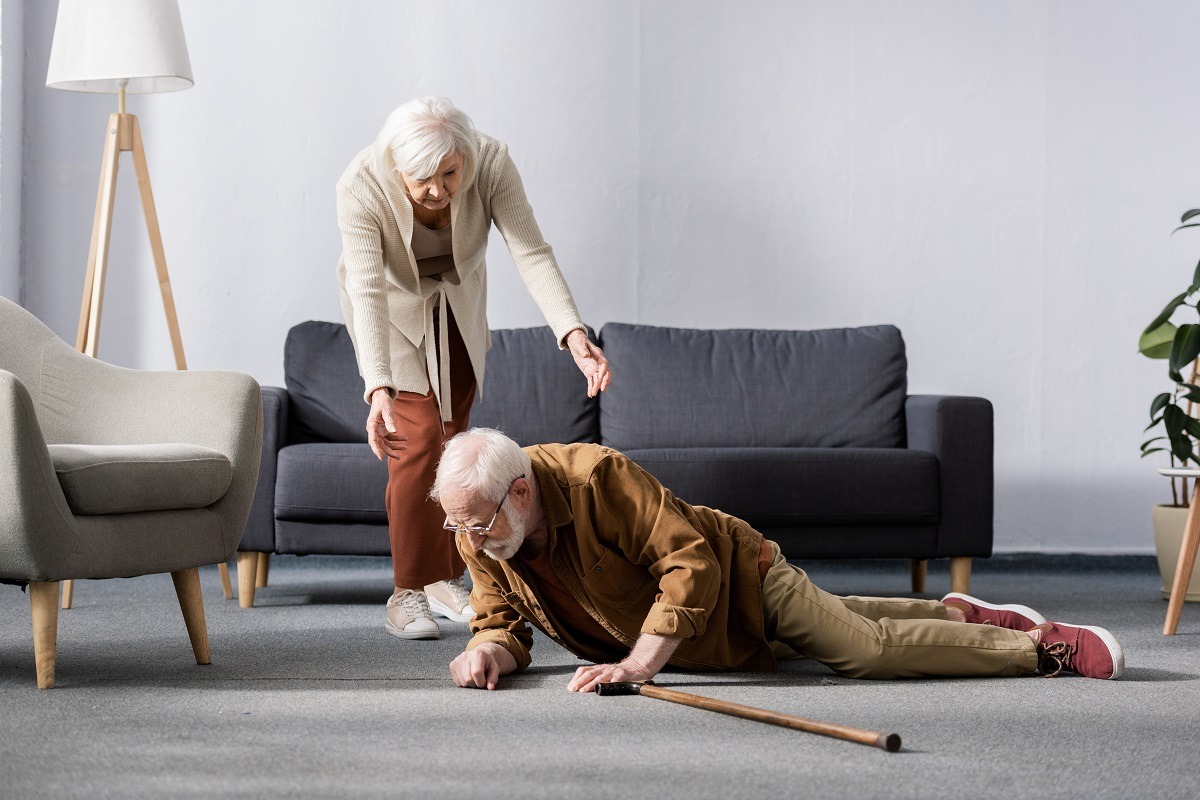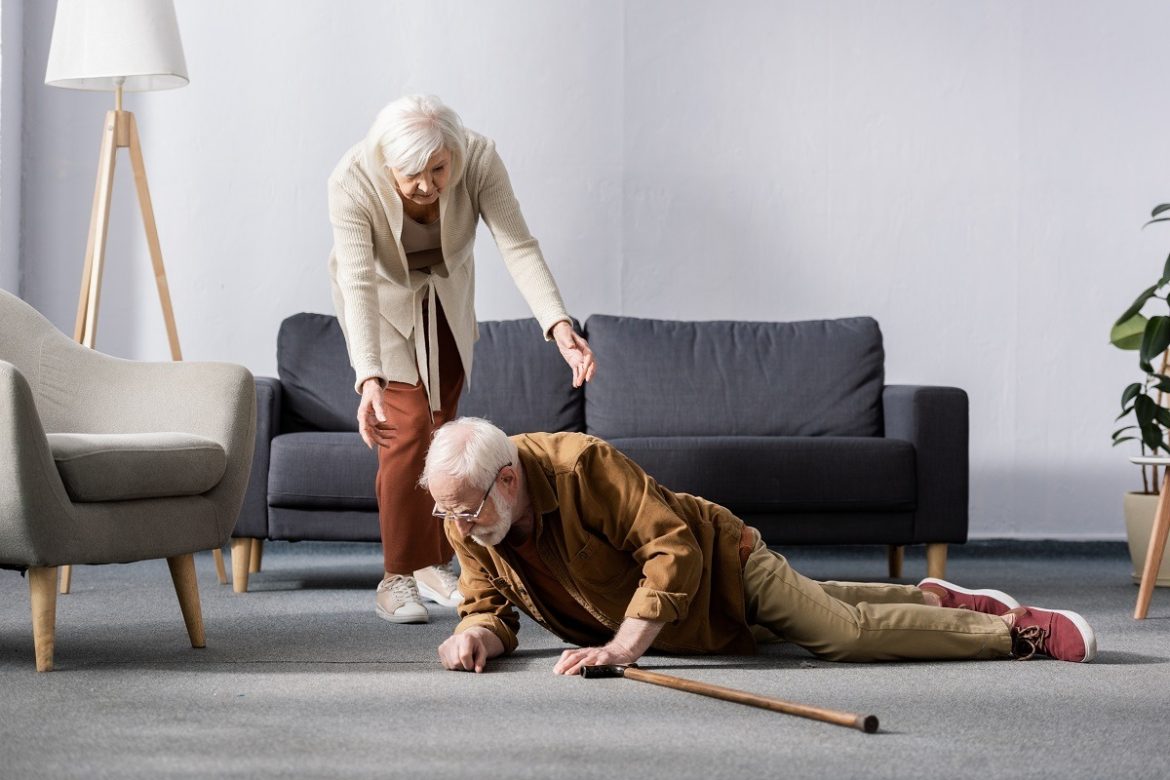-
 play_arrow
play_arrow
BayRadio Listen Live Broadcasting in Spain
Falls are a common health problem among older people and can have serious consequences. The traumatology specialists at Quirónsalud Torrevieja explain how to deal with these incidents with our relatives.
Risk Factors for Falls in Older Adults
There are multiple factors that contribute to the high frequency of falls, including:
>Intrinsic or person-related factors:
- Older age: The older a person is, the greater the risk of falling.
- Previous history of falls: Those who have suffered previous falls are at a higher risk of falling again.
- Muscle weakness and loss of balance: Decreased muscle strength and the ability to maintain balance increase the propensity for falls.
- Vision problems: Poor vision, eye disorders, and untreated eye diseases increase the risk of falls.
- Hearing problems: Hearing loss can affect the ability to detect and respond to auditory warning cues in the environment.
>Factors related to diseases and health conditions:
- Chronic diseases.
- Use of medications.
- Environmental factors:
-Obstacles in the environment: Loose carpeting, loose wires, poorly placed furniture, and other obstacles in the home increase the risk of trips and falls.
Slippery floors: Slippery surfaces in bathrooms, kitchens, and outdoor areas without proper safety measures can increase the risk of falls.
Inadequate lighting: Poor or uneven lighting makes it difficult to perceive obstacles and can lead to falls.
- Lifestyles & Behaviours:
Lack of physical activity: Inactivity can lead to muscle weakness, impaired balance, and decreased mobility, increasing the risk of falls.
Alcohol consumption: Excessive alcohol consumption can affect balance and coordination, increasing the risk of falls.
It is important to note that these risk factors do not act in isolation, but often interact and enhance each other.
“Identifying and addressing these risk factors can be essential to prevent falls in older people and promote healthy aging,” explain the experts at Quirónsalud Torrevieja.
How can falls be prevented in older people?
Preventing falls in seniors is a crucial approach to maintaining their health, safety, and quality of life.
Quirónsalud specialists recommend some effective strategies to prevent falls:
-Regular physical activity: Promoting an active lifestyle and performing exercises that improve balance, muscle strength, and flexibility can significantly reduce the risk of falls. Activities such as walking, tai chi, yoga, or strengthening exercises are beneficial. It is recommended that seniors consult with a healthcare professional before beginning any exercise program.
-Medication review and adjustment: It is important for older adults to review their medications regularly with their doctor or pharmacist, as certain medications can cause dizziness, drowsiness, or imbalance, increasing the risk of falls. The dose may need to be adjusted or the medication changed if necessary.
-Assessment and improvement of the home environment: It is critical that the home environment is safe and accessible.
-Regular vision and hearing tests: Maintaining good visual and hearing health is essential for spotting obstacles and warning signs in the environment. Have regular eye and hearing exams and wear appropriate glasses or hearing aids if needed.
-Proper use of mobility aids: If the use of canes, walkers, or other mobility aids is required, it is important that they are properly adjusted and used correctly.
-Proper diet and nutrition: Maintaining a balanced and adequate diet can contribute to bone and muscle health, helping to prevent falls. Make sure you have an adequate intake of calcium, vitamin D, and other essential nutrients.
-Education and awareness: Providing information to seniors about fall risk factors, preventative measures, and strategies to stay safe can help increase awareness and encourage safe behaviours.
What are the consequences of falls in older adults?
Falls in older adults can have a variety of consequences that affect both physical health and quality of life, including:
-Physical injuries: Falls can lead to serious injuries, such as broken bones, especially in the hip, wrist, and spine. These injuries may require surgery, hospitalisation, and lengthy rehabilitation. Even minor injuries, such as sprains and contusions, can limit a person’s mobility and functional ability.
Chronic pain: Injuries resulting from a fall can lead to chronic pain, especially in older people who already suffer from conditions such as arthritis. Chronic pain can negatively affect quality of life and limit the ability to participate in daily activities.
Fear of falling again: After a fall, many seniors develop a significant fear of falling again. This fear can lead to reduced physical activity, social isolation, and decreased quality of life. In addition, the fear of falling can increase the risk of future falls due to inactivity and the resulting muscle weakness.
Dependency and loss of autonomy: Severe injuries caused by a fall can lead to loss of independence and the need for assistance in activities of daily living. Dependency on caring for others can have a significant emotional impact on older adults, leading to frustration, sadness, and decreased self-esteem.
-Additional health complications: Falls can trigger additional health complications, such as prolonged immobility, pressure ulcers, respiratory infections, and mental health issues, such as depression and anxiety.
Economic and social costs: Falls in older adults also have economic and social implications. Hospitalisations, medical treatments, and rehabilitation can lead to high health care costs. In addition, falls can lead to a decrease in social participation, affecting personal relationships and community integration.
How to Make Your Home Safer and Reduce the Risk of Falls
Removing obstacles and maintaining order
Remove loose rugs or secure them with double-sided tape.
Make sure there are no loose electrical wires or in passageways.
Avoid clutter in hallways and transit areas.
Improve lighting
Make sure there is adequate lighting in all areas of the home, especially in hallways, stairwells, and bathrooms.
Install nightlights in bedrooms, hallways, and bathrooms for easy visibility at night.
Use easily accessible light switches and add additional lighting if needed.
Securing the stairs
Install secure handrails on both sides of stairs, secured firmly to the wall.
Place anti-slip strips on the steps to improve traction.
Keep stairs clear of objects or debris.
Improve bathroom safety
Install grab bars in the shower, bathtub and near the toilet to provide additional stability.
Use non-slip mats in the bathtub or shower.
Make sure bathroom floors are dry and free of water or moisture.
Making Adjustments in the Bedroom
Place a bedside lamp near the bed for easy access to lighting.
Make sure the bed is at an appropriate height to make it easier to get in and out.
Keep everyday items within easy reach and avoid the need to reach or climb on furniture to reach them.
Use mobility aids:
If necessary, use canes, walkers, or other assistive walking devices. It is important that these devices are properly adjusted and used correctly.
Keeping the floor safe
Use non-slip surfaces on slippery floors, such as kitchens, bathrooms, and outdoor areas.
Immediately clean up any spilled liquid or wet surface.
Avoid excessive waxing on floors, as it can make them slippery.
Maintain open communication
Encourage open communication between family members and caregivers about safety concerns and needs in the home.
Conduct regular home checks to identify potential risks and take preventative measures.
Written by: BayRadio News
Similar posts
Recent Posts
- Therapeutic advances usher in a new era in the fight against pancreatic cancer
- Quirónsalud Torrevieja Hospital celebrates 25 years of medical excellence, innovation and commitment to health
- Quirónsalud Torrevieja Hospital inaugurates the exhibition “ALTAS”, a tribute to patients and to 25 years of shared trust
- Post-operative massages? The definitive guide to ensuring the success of your cosmetic surgery
- Alzheimer’s Disease Could Double in Incidence over the Coming Decades

Ctra. Cabo La Nao, CC La Nao, Local 6 03730 Javea, Alicante, Spain
Advertise with us
Do you have a business in Spain? Do you provide a service to the expat community in Spain? Would you like your message to reach over 500.000 people on a weekly basis?
BayRadio is a community orientated radio station offering fantastic content to our many listeners and followers across our various platforms. Contact us now and find out what Bay can do for you!
Our business is helping your business grow.
BAY RADIO S.L. © 2024. ALL RIGHTS RESERVED. WEB DESIGN BY MEDIANIC









